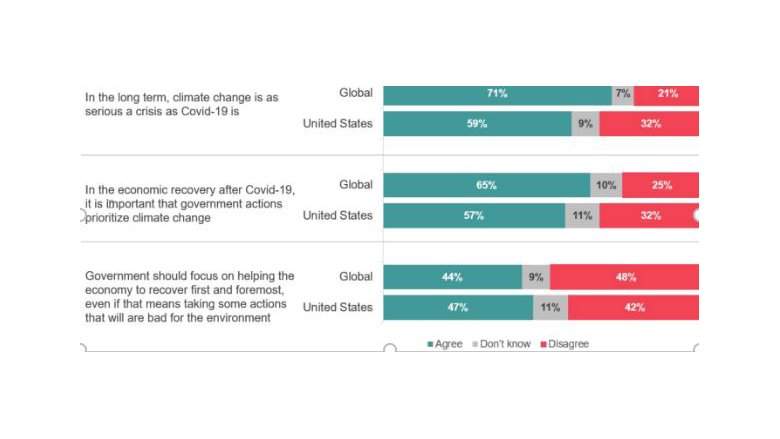In the past few decades, a general global consensus developed and awareness was raised on the need to address climate change. This led to an increase in actual sustainable infrastructure initiatives (such as in the clean energy sector). However despite efforts at the international level to reign in greenhouse gas emissions, governments have done too little to address inequities and environmental injustices.
They have frozen climate policy implementation (not to speak of meaningfully reducing emissions), and have not encouraged collective action. This happened despite ample opportunities to change and some short-term improvements. The COVID-19 crisis has recently put policies that tackle climate change even farther back as governments grapple with the economic fallout of the pandemic. Recent polls indicate that people want governments to take stronger actions to tackle climate change, however, the degree to which they are willing to cut back on personal life-style choices varies, with the US generally showing lower willingness compared to other industrialized countries.
Given the stronger impetus from climate summits in recent years, governments have a real opportunity to emerge from this crisis to lead the way on the climate one. A government of the future that actively takes the lead in building coalitions, learning from past, crises, mistakes, and ambivalence, and using the full potential of technology, has the greatest chance of avoiding future climate catastrophes.
Views toward climate change and the environment in relation to COVID-19

COVID-19 lessons for the climate emergency

Hypothetical social and economic impacts of the COVID-19 and climate crises in the presence and absence of preventative measures


